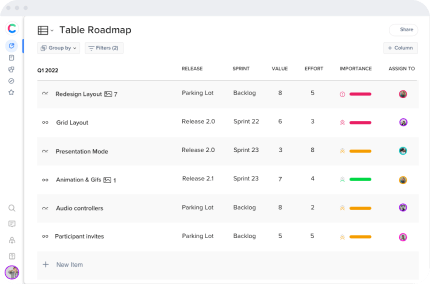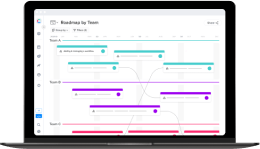What is a platform product manager?
The role of the Platform Product Manager is challenging because, unlike other Product Managers who may be responsible for one or two apps, the Platform Product Manager is in charge of a whole platform of products within a company.
Unlike the typical Product Manager, a Platform product manager is accountable for a far more comprehensive range of systems, services, and codebases interconnected via complicated APIs instead of the traditional Product Manager (PM).
The platform product manager will collaborate with technical and operational stakeholders to ensure that the virtual platform is adequately maintained and available. Platform project managers will also collaborate with third-party vendors to facilitate API interfaces with the platform.
Uptime is a significant concern because such platforms are frequently used as the foundation for other applications. Trust in technology plays an integral part in building and maintaining customer relationships. Compared to a standard product management function, having a deeper understanding of the technical parts of the role might be quite beneficial in this situation.
Roles and Responsibilities of a Platform Product Manager
A platform product manager must be able to think critically about the customer experience to thrive in their product management position. They must also have good analytical abilities and maintain connections with internal stakeholders and external partners.
In addition to having a technical understanding of how the software works and being an effective communicator, they must be familiar with all areas of development from design to deployment to make informed judgments on which you should prioritize features for a successful product strategy.
Platform Product Manager vs. Product Manager
Because platform use cases are more diverse than those of a single-app product manager, the unique skills required by a Platform product manager are frequently very different from those needed for a single-app product manager.
The most notable differences between a Platform product manager and a typical product manager are their focus and scale: macro against micro, internal stakeholders versus external customers, and macro versus micro.
Let’s be more explicit about the differences between Project Managers and Platform Project Managers because we know that it doesn’t imply anything. In the conventional sense, a Product Manager is concerned with meeting customers’ needs and improving their overall satisfaction with the product. Appealingly providing features and upgrades to end-users is the focus of the customer-facing product manager function.
The Platform Product Manager is more concerned with the big picture than the details. They don’t look at things from the client’s perspective but rather through a macro lens that is more zoomed in. Their thoughts are more inward-looking on uptime, APIs, storage, and architecture.
How to Be Platform Product Manager
Being a successful platform product manager requires more than a thorough understanding of the underlying technology. While it is true that technical skills are required for the position, the Platform product manager will spend the majority of their time collaborating with key stakeholders to achieve success. A Platform product manager must be confident and personable enough to collaborate with people daily, from the head of operations to the engineering team leads.
Having a working knowledge of technical communication systems The usage of APIs to facilitate communication between the core platform and third-party integrations is a critical component of the Platform product manager’s responsibilities.
Any platform product manager who is well-versed in this technical communication style will have a distinct advantage over their peers.
Platform product managers must offer results to help firms develop and achieve their objectives, depending on how successfully they manage various teams. One of their most important responsibilities is to collaborate, communicate, and commend other groups.
They must also be able to prioritize because they work on the strategic vision of several product lines. Platform product managers must be able to prioritize tasks and accept or disapprove them independently of the wishes of other stakeholders.
The ability to manage long-term roadmaps is essential. Equipping a platform’s workload is a common task, but it indicates what will come shortly. It is an example of the delicate balancing act, making it possible for Platform Product Managers to oversee a roadmap when user counts might double in a day.


